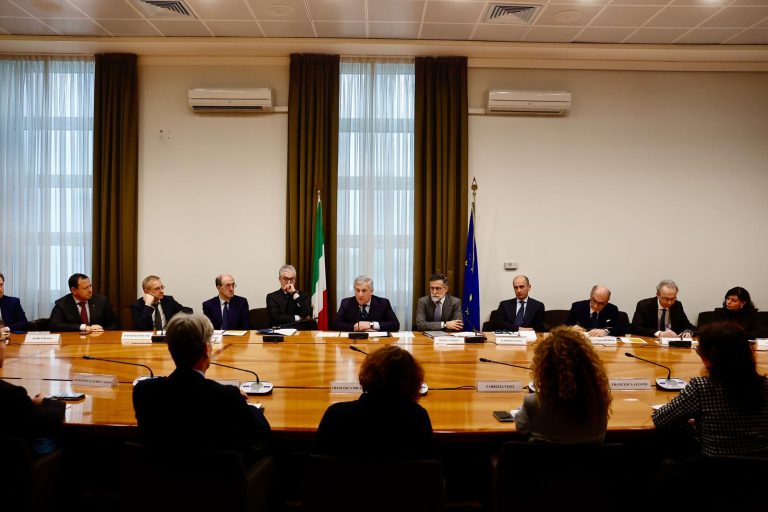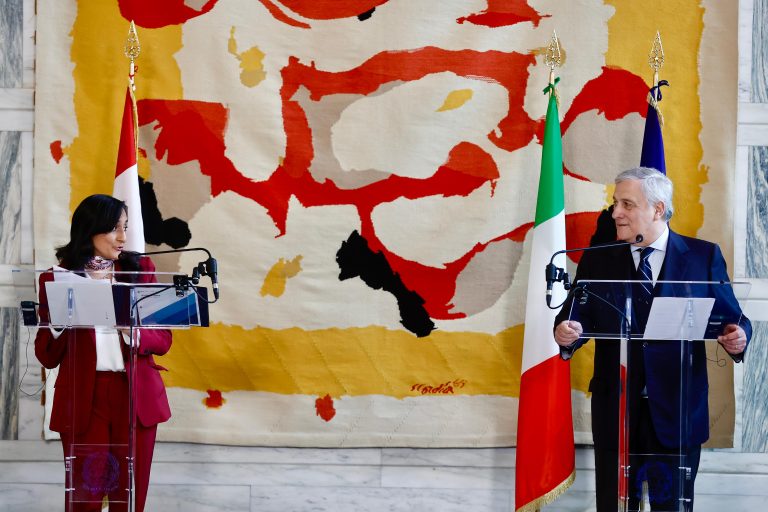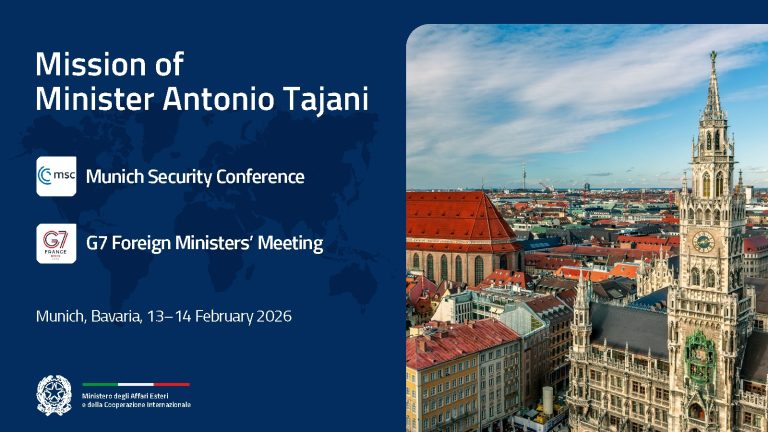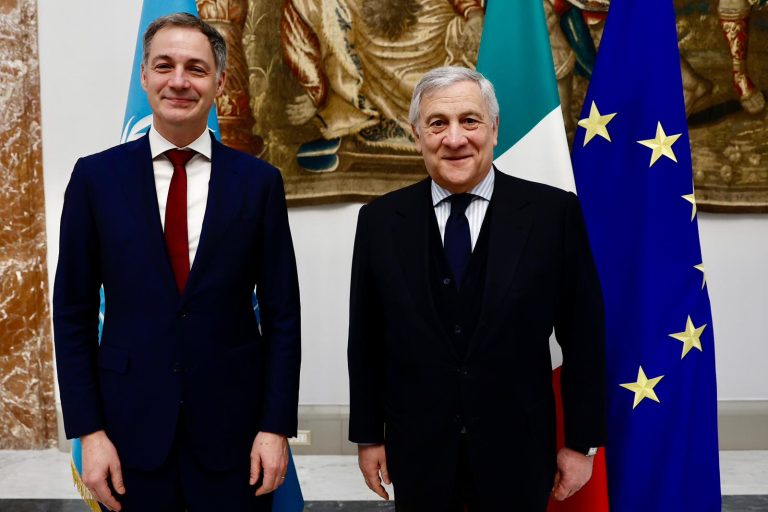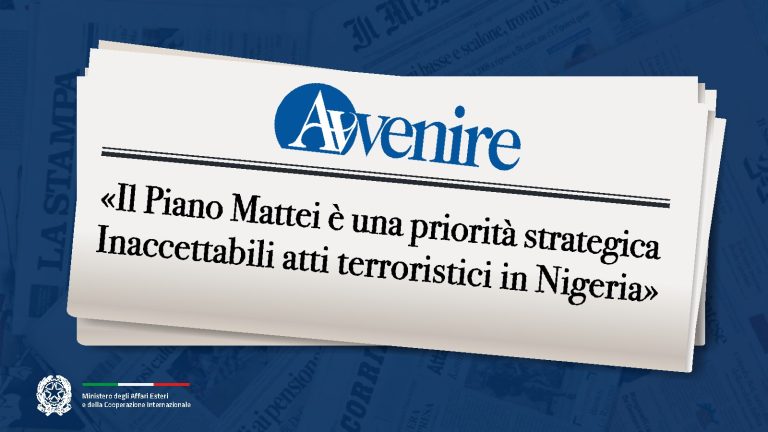Today marks the end of a long period that saw the Italian government involved in the preparation and management of two international conferences held in Rome over the last four days. The first was the “Conference on Development and Migration” called for by Prime Minister Giorgia Meloni and organised on Sunday at the Farnesina. At the same time, Italy worked on the preparation and organisation of the UN Food Systems Summit held from Monday to today.
Here are some considerations in the aftermath of the events: the conference was important first and foremost for us Italians. The world won’t be changed by a conference. However, over the months, while preparing this initial step of the “Mattei Plan”, we Italians have compared our ideas and we have harmonised them within the government, in order to then try to build an approach to be shared with the nations of the enlarged Mediterranean region.
Italy then opened its doors to friendly countries. We were not alone in Rome: all the leaders of the southern side of the Mediterranean were present, there were the MED 5 countries, which are the first entry points for irregular migration, along with a number of Sahel and Horn of Africa partners, the Arab countries of the Gulf, as well as the leaders of the EU and of all international financial institutions. They all accepted Italy’s invitation, Rome’s call for dialogue. I would also like to stress that the final document is something that first and foremost the Italian government will have to abide by: it will be the guiding principle for our future policies. A true “doctrine” to guide our national policy.
It was a first signal to the outside world: we must address the issue of development by using a different mentality than in the past. As President Giorgia Meloni reminded us, too often the West has given the impression of being more concerned with giving lessons rather than lending a hand. As the President of the EU Commission, Ursula von der Leyen, reminded us, Europe’s recent understanding with Tunisia can serve as an important model for launching new partnerships. We will have to work together to combat migrant smugglers, but we will also have to act together to expand legal migration channels. After all, Italy and Europe certainly need migrants, but they need to manage their inflows and cannot leave migrants and Europe itself at the mercy of illegality.
I insist: there is no way to counter irregular migration flows without addressing the root causes that lead people to migrate. Will we be able to start a virtuous cycle? We’ll see. But in the meantime, the following ideas emerged during the conference.
Number one: participants in this so-called “Rome Process” agree to promote a widespread, non-predatory and sustainable development model in the countries of origin and transit of irregular migration. A model based on poverty alleviation and social protection initiatives, to create jobs and skills training, to guarantee essential services and to fight climate change together. Existing bilateral, multilateral and European cooperation initiatives should be strengthened to avoid unnecessary overlapping. In other words: we must streamline our efforts in an agreed direction, that is, the social and economic development of the countries to be supported.
Number two: to fight irregular immigration, it is necessary to bear in mind that the root of the problem are global challenges that must be tackled collectively and in a shared manner. National security actions will not suffice. Measures to prevent and counter irregular migration flows must be strengthened, but above all, it is necessary to avoid any loss of human lives and to fight migrant smugglers by land and sea.
Number three: we will work to promote legal mobility to Europe and to support integration processes. We will strengthen communication and information campaigns to raise awareness of the risks and dangers of irregular migration. We should promote policies aimed at the possible introduction of entry visa schemes tailored to the countries of origin. We will also need to establish an accessible, efficient and transparent visa issuing system in destination countries to promote people-to-people exchanges, particularly for those categories that do not pose risks of irregular migration.
Number four: it will be necessary to promote initiatives and measures for the international protection of those in need. This includes the establishment of legal and safe routes based on the humanitarian corridor model to be improved and expanded at the European level while respecting national sovereignty and systems.
I would like to make a few general considerations at this point, which are also related to the diplomatic “structure” that we wanted to create. The format of the Rome Conference is new, but inclusive and therefore open to the participation of others who wish to make their own constructive contributions. Most of the countries that gathered in Rome are themselves countries of origin, transit and destination. Until yesterday the countries of origin and transit were on one side while the countries of destination were on the other side. On Sunday we took an important step towards overcoming these man-made barriers. We must work and act together. During the Conference we also witnessed the desire of our partners in the region to relaunch genuine cooperation in the fight against the criminal networks that run human trafficking. These networks are widespread and transnational and can only be defeated through more intense and effective international cooperation. Furthermore, we have given voice to the shared, deep awareness concerning the human dimension of the migration phenomenon, starting from its most dramatic manifestations. I refer to the tragic images of death that have reached us in recent days from the North African desert. Images also evoked in the words of the Holy Father in his Angelus on Sunday. Words that I wanted to repeat during the Conference and that urge us to take collective action to fight against this new form of modern slavery. A slavery also fuelled by the very serious security problems that continue to afflict the Sahel and West Africa, such as the continued existence of terrorism and Islamic fundamentalism.
I wish to conclude with an image: the “Rome Process” is not the solution, it is an incubator. It is a structure in which we can join forces to embark on a path of economic development, political collaboration, and fight against crime. But most importantly, of humanity and respect.

